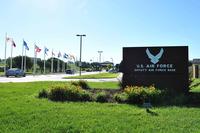The Army has been planting stories favorable to the coalition in Iraqi newspapers, according to documents obtained by the L.A. Times.
The Financial Times weighed in today:
Many of the articles are presented in the Iraqi press as unbiased news accounts written and reported by independent journalists. The stories trumpet the work of U.S. and Iraqi troops, denounce insurgents, and tout U.S.-led efforts to rebuild the country. ... As part of a psychological operations campaign that has intensified over the past year, one of the military officials said that the task force [responsible for planting the stories] also has purchased an Iraqi newspaper and taken control of a radio station, and is using the outlets to channel pro-American messages to the Iraqi public. Neither is identified as a military mouthpiece.
This news should come as no surprise to those following the coalition's information warfare campaign in Iraq. But planting stories represents the seediest -- and least common -- tactic for shaping Iraqi attitudes. The main campaign of the infowar is the coalition's efforts to train up Iraqi journalists in Western-style journalism. Division and brigade public affairs shops throughout Iraq work hand-in-hand with local reporters, helping them gain access to important stories, equipping them with technology they otherwise could not afford and encouraging them to network, check their sources and tell both sides.
Seriously. I've seen it happen in Tikrit with the 42nd Infantry Division, in eastern Iraq with the 278th Cavalry Regiment and with British forces in Basra. A couple bad apples don't represent the entire coalition infowar effort.
Take, for example, the Diyala radio station near Baqubah, where Iraqi journalists host call-in talk programs and the provincial governor delivers speeches. Last year a busload of radio employees were massacred by insurgents, so the 1st Infantry Division began patrolling the area and posted guards at the station. Now it's secure. And sadly, in Iraq these days, secure means free.
Does that make everything that comes out of the Diyala radio station propaganda?
THIS JUST IN: Defense News quotes White House spokesman Scott McClellan responding to the allegations:
"We're very concerned about the reports," ... McClellan told reporters. "We have asked the Department of Defense for more information.
"We want to see what the facts are.
"The United States is a leader when it comes to promoting and advocating a free and independent media around the world, and we will continue to do so," McClellan added.
"We've made our views very clear when it comes to freedom of press.
"And in terms of this specific issue, again, what we want to do is find out what the facts are and then we�ll be able to talk about it more at that point," he said.
--David Axe
PROPAGANDA 'R' US?
© Copyright 2025 Military.com. All rights reserved. This article may not be republished, rebroadcast, rewritten or otherwise distributed without written permission. To reprint or license this article or any content from Military.com, please submit your request here.









